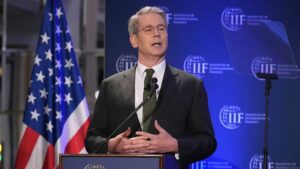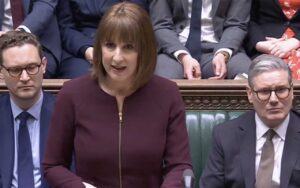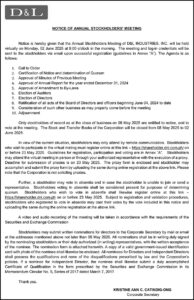THE PESO may hit a record low of P60 against the US dollar this year amid heightened uncertainty arising from US President Donald J. Trump’s protectionist policies, a Bank of the Philippine Islands (BPI) economist said.
According to BPI Global Markets Research estimates, the peso is expected to weaken to the P60.90-per-dollar level by the third quarter. By end-2025, it expects the peso to settle at P60.40 per dollar.
“It’s a very low confidence forecast. We’re looking at it reaching the P60 level just because Mr. Trump is so unpredictable. It’s so hard to say what he’s going to do next,” BPI Lead Economist Emilio S. Neri, Jr. said at an online media briefing on Wednesday.
“And if he does pursue these reciprocal tariffs and causes the US to suffer from very high inflation, it is not far that the peso hits P59 again or even hit the P60 level,” he added.
Mr. Trump has rattled markets with his “on-and-off again” tariff policies against major trading partners China, Canada, and Mexico. He is scheduled to announce details of a reciprocal tariff plan on April 2. However, Mr. Trump recently said that he may give “a lot of countries” breaks on tariffs.
BPI strategist Marco Javier said the peso could end the first quarter at P58.40, depending on the developments on Mr. Trump’s tariff policy.
“We’re looking around P58.40 to end the first quarter. This will all depend on if inflation in the US will move up because of the Trump tariff policies,” he added.
On Wednesday, the peso closed at P57.69 per dollar, weakening by nine centavos from its P57.6 finish on Tuesday.
Mr. Neri said the country’s exit from the Financial Action Task Force’s (FATF) “gray list” also supported the local currency.
“Overall sentiment versus the dollar has generally softened, not because we’re doing anything great — I think what we’ve done great more recently is the exclusion from the FATF list. Successfully excluding ourselves from the FATF (gray list) has helped the peso do better,” Mr. Neri said.
Meanwhile, BPI economists said the threat of a “zero remittance week” by some overseas Filipino workers (OFW) could have some negative effects on the exchange rate, reserves and even the interest rate.
“Even growth can be dragged since it’s a major funder of household final consumption and the impact could be that we could breach the P60 level immediately or BSP might have to postpone any cuts at all this year, maybe even have to hike later on this year if we hit the P61, P62 level,” Mr. Neri said.
“But this is a big if… If you look at the numbers, a lot of them still come from the United States, and the Middle East. We’re not sure whether these people who air the statement fairly or adequately represent our overseas Filipinos.”
Some OFWs have called for a “zero remittance” week to protest former President Rodrigo R. Duterte’s recent arrest and detention by the International Criminal Court at The Hague.
Mr. Javier estimated “substantial” losses if OFWs stop sending remittances for a week.
“I did some very rough calculations… If we grow (remittances) 3% to about $35.5 billion this year, it’s about $97.3 million a day that might be lost,” he said.
Cash remittances from OFWs jumped by 3% to a record-high $34.49 billion in 2024.
Meanwhile, BPI projects Philippine gross domestic product (GDP) to expand by 6.3% this year.
This is within the government’s 6-8% target and would be faster than the 5.6% growth last year.
“We hope to see a return of 5% year-on-year growth for household consumption. And again, this might be boosted in the first half by a lot more election spending,” Mr. Javier said.
BPI also expects the BSP to deliver 50 to 75 basis points (bps) worth of rate cuts this year.
“The first one (cut) is expected to be on April 10. Again, assuming that the April 2 announcement (by Mr. Trump) will not be such a huge game changer,” Mr. Neri said.
“We think the next one will have to be before the fourth quarter of this year because the favorable base effects arising from rice will be washed out by the fourth quarter. There are no more base effects on rice and since we are seeing increases in meat and many other inflation items, the BSP might not be able to deliver a cut in the fourth quarter of this year if these trends continue.”
However, Mr. Neri said the BSP could pause its easing cycle to match the US Federal Reserve if the US economy experiences “stagflation.” — A.M.C. Sy
















